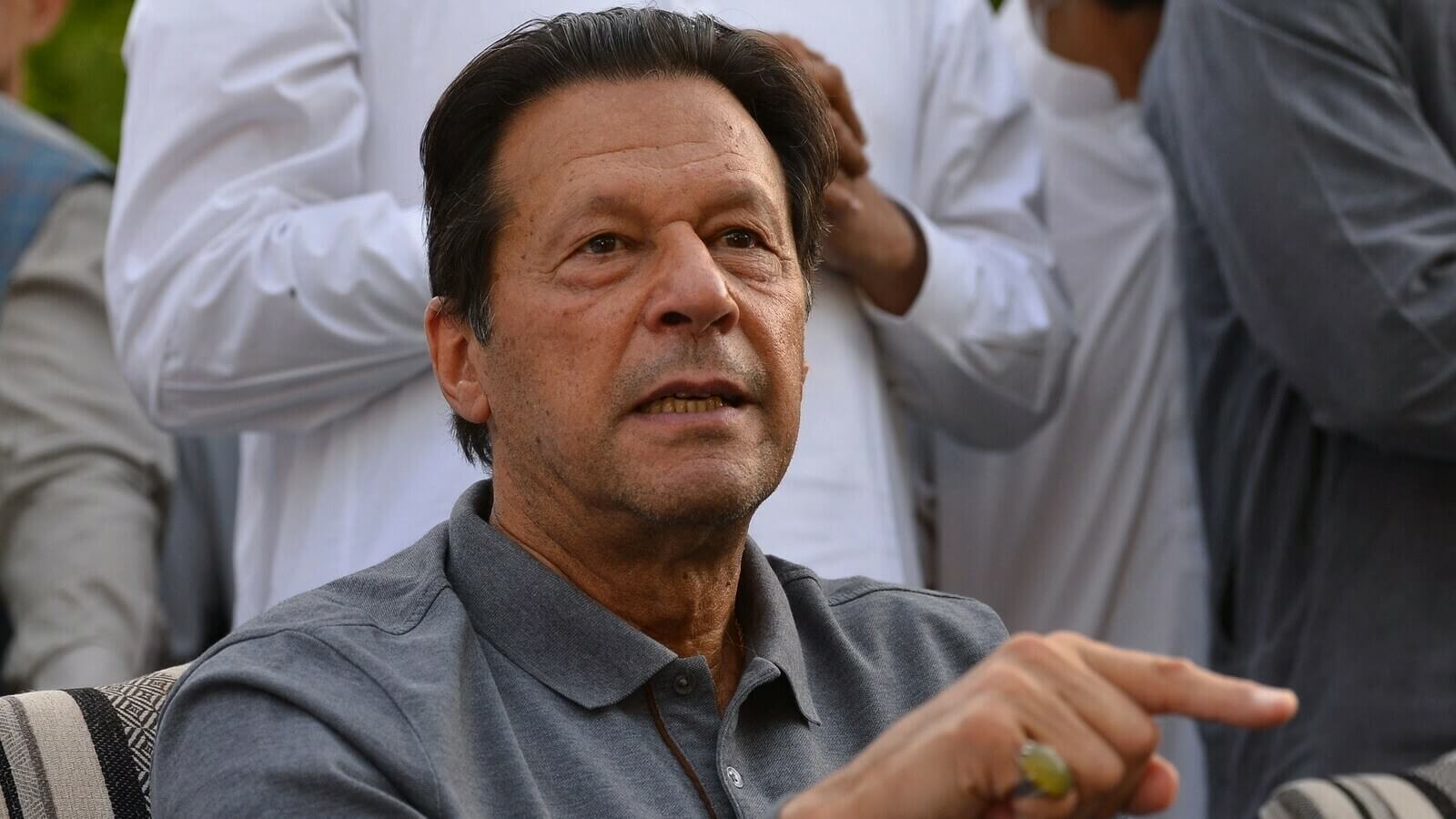The Islamabad High Court (IHC) ordered the dismissal of anti-terror charges against former Pakistani Prime Minister (PM) Imran Khan that were placed last month for threatening judges and police officials during a rally in Islamabad.
Delivering a reserved judgement, the two-member bench said Khan’s rally speech was not controversial and therefore allowing the charges against him to stand would “open a floodgate” of such cases under the Anti-Terrorism Act, which has been misused in the past.
The chief justice of the IHC, Athar Minallah, asked rhetorically: “Which politician does not say such things?”
Keeping this in mind, the judges concluded that none of the sections in the complaint applied to Khan’s speeches.
Special Prosecutor Raja Rizwan Abbasi had argued that Khan’s remarks threatened to cause damage beyond physical injuries, asserting that the inflammatory statements were not by an “ordinary person” but by a former PM who could return to power and who has a significant following.
Meanwhile, Khan’s lawyers argued that the prerequisites for a terrorism case were not present in the charges against the former leader. Defence lawyer Salman Safdar said, “A terror case can be lodged for creating an atmosphere of fear and terror, not on the possibility of creation of such an atmosphere.” Celebrating the judgement, Safdar said that the IHC order provides evidence of the prosecution’s “mala fide intent.”
Islamabad High Court (IHC) written order says that section 7 of Anti Terrorism Act (ATA) 1997 is not attracted on Imran Khan in the light of Supreme Court judgment. pic.twitter.com/sJ1YsVBSxp
— Hasnaat Malik (@HasnaatMalik) September 19, 2022
A magistrate filed the case after a rally in August during which Khan vowed to file lawsuits against Islamabad’s inspector-general, deputy inspector general, as well as Additional Sessions Judge Zeba Chaudhry for their role in the “torture” of his ally Shahbaz Gill. He vowed that he would “not leave” the protest site and would “not spare” the officials behind the attacks on his chief of staff.
The First Information Report subsequently accused Khan of terrorising police officials and judiciary members.
Khan’s Pakistan Tehreek-e-Insaaf (PTI) party then approached the IHC to grant the former PM an interim bail that would have expired on 20 September.
While the IHC dismissed the anti-terror charges, Khan still faces the risk of disqualification by the Election Commission, with the Sharif government having accused him of failing to disclose gifts received during his tenure and selling them for a profit. The Commission reserved its verdict on Monday.
Thank you Chakwal for the record turnout today at my Haqiqi Azadi jalsa. I have asked my nation to smash the idol of fear through which this imported govt of crooks ( 60 percent of the cabinet is on bail ) seeks to enslave us. MashaAllah our nation is ready. pic.twitter.com/xOKtwZfBKS
— Imran Khan (@ImranKhanPTI) September 19, 2022
Khan has been relentless in his opposition to the incumbent government. He has recently criticised the government for delaying general elections to appoint a favourable replacement for army chief General Qamar Javed Bajwa. Speaking at a rally on Monday, he urged his followers to respond to threats by “calling them from secret numbers” and “threatening them of inflicting harm.”
In response, Interior Minister Rana Sanaullah raised concern that Khan was politicising the issue, assuring that PM Shehbaz Sharif would appoint a new army chief in accordance with the constitution. He also warned Khan against leading a march to Islamabad, saying it would either result in his arrest or a “disgraceful exit.”
In other related developments, an FIR has also been filed against Information Minister Marriyum Aurangzeb under the Anti-Terrorism Act for inciting communal hatred and violence against citizens, including Imran Khan.

